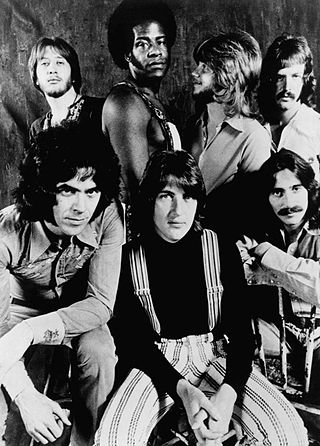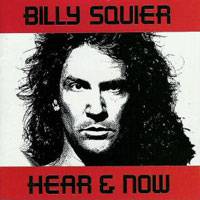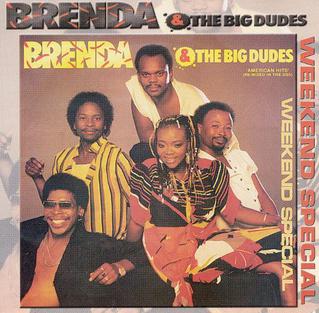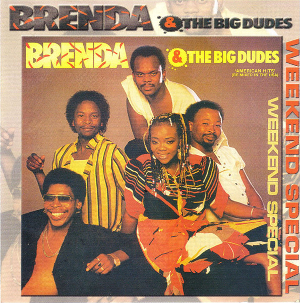
Men at Work are an Australian rock band formed in Melbourne in 1978 and best known for breakthrough hits such as "Down Under", "Who Can It Be Now?", "Be Good Johnny", "Overkill", and "It's a Mistake". Its founding member and frontman is Colin Hay, who performs on lead vocals and guitar. After playing as an acoustic duo with Ron Strykert during 1978–1979, Hay formed the group with Strykert playing bass guitar and Jerry Speiser on drums. They were soon joined by Greg Ham on flute, saxophone and keyboards, and John Rees on bass guitar, with Strykert switching back to lead guitar. The group was managed by Russell Depeller, a friend of Hay, whom he met at La Trobe University. This line-up achieved national and international success during the early to mid-1980s.

Three Dog Night is an American rock band formed in 1967, founded by vocalists Chuck Negron, Cory Wells, and Danny Hutton. This lineup was soon augmented by Jimmy Greenspoon (keyboards), Joe Schermie (bass), Michael Allsup (guitar), and Floyd Sneed (drums). The band had 21 Billboard Top 40 hits between 1969 and 1975, with three hitting number one. Three Dog Night recorded many songs written by outside songwriters, and they helped to introduce mainstream audiences to writers such as Randy Newman, Paul Williams, Laura Nyro and Hoyt Axton.

Pablo Cruise is an American pop/rock band from San Francisco currently composed of David Jenkins, Cory Lerios, Sergio Gonzalez (drums), Larry Antonino, and Robbie Wyckoff. Formed in 1973, the band released eight studio albums over the next decade, during which time five singles reached the top 25 of the Billboard Hot 100. The group underwent several personnel changes and split up in 1986. The original lineup—Jenkins, Lerios, Price and Bud Cockrell—reunited briefly in 2004, and the group continues to tour today with two out of the original four members present.
Brenda Nokuzola Fassie was a South African singer, songwriter, dancer and activist. Affectionately called MaBrrr by her fans, she is also known as the "Queen of African Pop", the "Madonna of The Townships" or simply as The Black Madonna. Her bold stage antics earned a reputation for "outrageousness"; ironically, her Xhosa name, Nokuzola, means "quiet", "calm", or "peace".
Rufus is an American funk band from Chicago best known for launching the career of lead singer Chaka Khan. They had several hits during their career, including "Tell Me Something Good", "Sweet Thing", "Do You Love What You Feel", and "Ain't Nobody". Rufus and Chaka Khan were one of the most popular and influential funk bands of the 1970s; they had four consecutive number-one R&B albums, ten top 40 pop hits, and five number-one R&B singles among other accolades.

The Chills are a New Zealand indie rock band that formed in Dunedin in 1980. The band were fronted by founding mainstay singer-songwriter, guitarist Martin Phillipps. During the mid-1990s they were billed as Martin Phillipps & the Chills. Their top ten studio albums in their homeland are Submarine Bells (1990), Soft Bomb (1992), Snow Bound (2018) and Scatterbrain (2021). The Chills were a cult band in other parts of the world as one of the earliest proponents of the Dunedin sound. Their top 20 singles are "Pink Frost", "Doledrums", "I Love My Leather Jacket" (1986), "Heavenly Pop Hit" (1990) and "Male Monster from the Id" (1992).

Can't Slow Down is the second solo studio album by American recording artist Lionel Richie. It was released on October 14, 1983, by Motown Records.

The Revolution is an American band formed in Minneapolis, Minnesota, in 1979 by Prince, serving as his live band and later as his studio band. The band's sound incorporated rock, pop, R&B, funk, new wave and psychedelic elements. Along with Prince's other projects, the Revolution helped create the Minneapolis sound. By the time of their 1986 breakup, the Revolution had backed Prince on two studio albums, two soundtracks and two videos.
Charlie was a British rock band formed in 1971 by singer/songwriter Terry Thomas. The group was most active as a recording unit from the mid-1970s to 1986. Charlie never charted in the UK but had four minor hits in the US: "Turning To You" (1977) "She Loves to Be In Love" (1978), "Killer Cut" (1979) and "It's Inevitable" (1983).

La Mafia is an American five-time Grammy Award-winning musical group. It has its roots in the Northside neighborhood of Houston, Texas, and has charted a course as a Latin music band.
Little Heroes were an Australian band formed in 1980, by founding mainstay Roger Hart on lead vocals and guitar. They released three studio albums, Little Heroes, Play by Numbers and Watch the World. Their highest charting hit, "One Perfect Day", which was released in 1982, reached No. 12 on the Kent Music Report Singles Chart. Their other charting singles are "Young Hearts" (1982), "Watch the World" and "Bon Voyage". They disbanded in June 1984.

Stompin' at the Savoy – Live is an album by American R&B/funk band Rufus with singer Chaka Khan, released on the Warner Bros. Records label in 1983.

Party 'Til You're Broke is the ninth studio album by funk band Rufus, released on the MCA Records label in 1981. Party 'Til You're Broke which was the band's second album not to be fronted by Chaka Khan reached number 24 on Billboard's R&B Albums chart and number 73 on Pop and included the singles "Tonight We Love" and "Hold on to a Friend", making Party 'Til You're Broke the most successful Khan-less album from Rufus.

Hear & Now is the sixth studio album by American rock musician Billy Squier, released on June 14, 1989. It features his last Billboard Hot 100 hit, "Don't Say You Love Me", as well as popular fan favorites and radio hits "Don't Let Me Go", "Stronger" and "Tied Up", the latter two being co-written with Desmond Child.

Paradise in Gazankulu is an album by Harry Belafonte, released by EMI Records in 1988. It was his final studio album, prior to his death in 2023. The album deals with the plight of black South Africans under the Apartheid system. The album was re-released as an official mp3 download in the U.K., in 2010.

Zulu Rock is the third album of French singer Lizzy Mercier Descloux, which was released on ZE Records in 1984 and recorded at the Satbel Studio, Johannesburg, South Africa. Its sound was inspired by African folk music mixed with 80's French pop. An alternate version of the album was entitled "Mais où Sont Passées les Gazelles".

Greatest Hits: The Queen of African Pop (1964–2004) is a posthumous greatest hits album by South African Afro-pop singer Brenda Fassie. The album was released on November 30, 2004 via EMI Music Distribution.

"Weekend Special" is the debut single by the South African recording group Brenda and the Big Dudes taken from their debut studio album Weekend Special (1983). It was written by Melvyn Matthews, as was the B-side "Life Is Going On". "Weekend Special" features production by Blondie Makhene and Matthews.

Ag Shame Lovey is the debut solo studio album by South African singer Brenda Fassie. It was released in June 1987 through CCP Records. During the recording of Brenda and the Big Dudes last album Touch Somebody (EP) (1986), the group announced that they were disbanding.

Weekend Special is the debut studio album released by Brenda and the Big Dudes on the CCP Records label in 1983. It was produced by Mally Watson and Blondie Makhene. Weekend Special spawned two singles "Weekend Special" and "You Just Need Someone". The album sold over 200 000 copies in South Africa by the end of 1984.
















